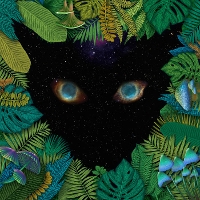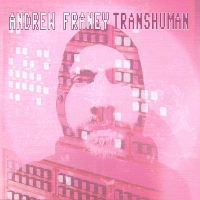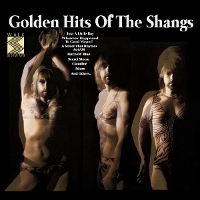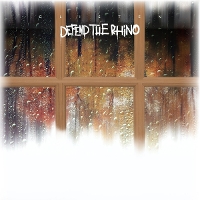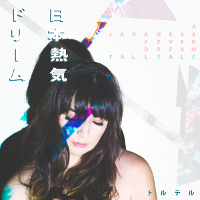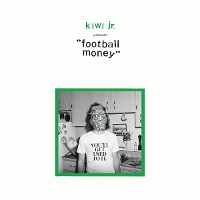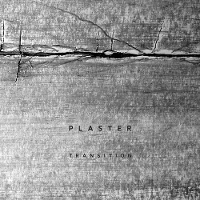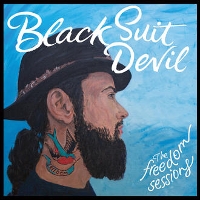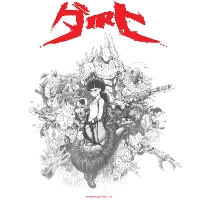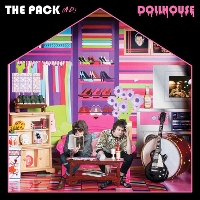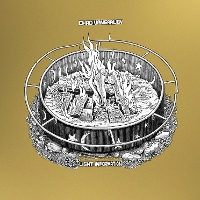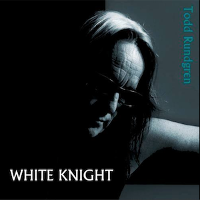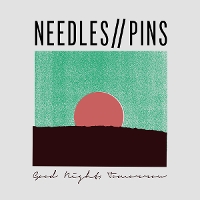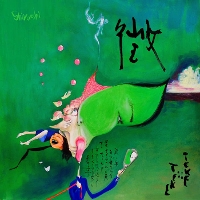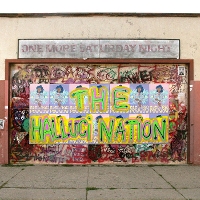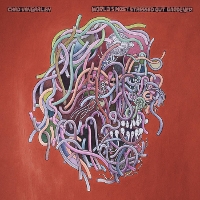The Peggy Lee Interview: Accessibility in a Sometimes Inaccessible World
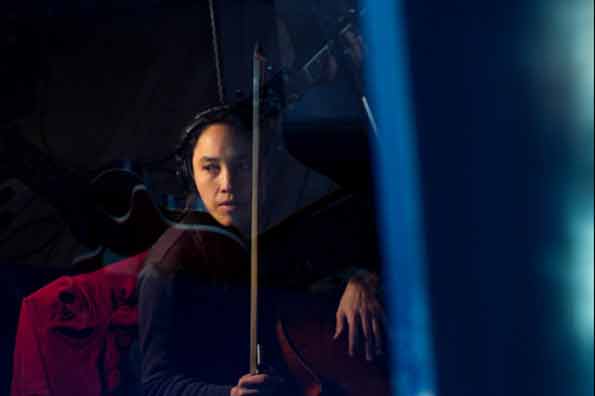
Classically trained cellist Peggy Lee has found a niche in the highly, innovative and challenging improvisational music scene in Vancouver.
In the past, generally, if I wanted my fix of improvised music at a jazz festival, I would go through the program and check out the European (Scandinavian, more often, than not) or Quebec bands. Now, I need look no further than Vancouver's rising star Peggy Lee.
Over time, there seems to have been an increase in the amount of improvised music becoming accessible in many regions of Canada. Both Montreal and Toronto, have a healthy improvised music scene. Quebec has long been an important area for improvised music, with Musique Actuelle festivals and record labels devoted to this music. Names like Jean Derome, L'Orkestre Des Pas Perdus, Felix Stussi, Marianne Trudel and others have been seen around the country. Toronto’s Barnyard label, run by Jean Martin is a driving force in this creative music field in that city and Christine Duncan and the Element Choir, Tania Gill, Rob Clutton, Justin Haynes and many others have recorded with him. In Vancouver, there were less options, but eventually Jesse Zubot started Drip Audio in 2005, giving a place for many of the improvised musicians in Vancouver to congregate. That is not to say, that there were not other options. Francois Houle had been prolifically, recording his music for years and Drip Audio seems to come and go, but it certainly had a big influence on the Vancouver improvised music scene. Now, improvised/experimental/avant garde music is becoming more commonplace at jazz and other festivals. Vancouver has gone beyond having a burgeoning scene to having a fairly, healthy one. Credit can be given to Zubot, Houle, Ron Samworth, Tony Wilson, Paul Plimley and others for hanging in there and younger musicians are now carrying the torch. Bands come and go. In the Vancouver scene Pugs & Crows have shown some staying power, and other groups, with musicians like trumpet players JP Carter, Brad Turner (who is well known in contemporary jazz and education, too), the drummer Dylan van der Schyff, bassist Tommy Babin, etc. are getting frequent gigs at the Vancouver International Jazz Festival.
I wasn�t really thinking of jazz when I started improvising. I was just improvising.- Peggy LeeThat brings us to the subject of this interview: cellist Peggy Lee. I’m not sure that I have seen many people playing the cello, other than in a symphonic setting. Yet, Lee has successfully brought her instrument to a variety of genres since she moved to Vancouver from Toronto in 1989. She has found her niche in the improvised music field and leads her own band and is involved in the high, profile band, Waxwing, with sax player Jon Bentley and the indefatigable icon of the scene, Tony Wilson. Lee is a prolific composer. She composed ten tracks on her latest release Echo Painting and had a hand in composing another. The Songlines website quotes “The idea, says Lee, was “to bring together some of my longstanding band members with some of the younger players that I had recently begun to collaborate with. I wasn’t thinking about specific instruments really, just the players that I was excited about working with. The name to me simply speaks of our efforts to make sense of our world through artistic practice… And of course there are echoes of much of the music that has been meaningful to me over the years.” I recently chatted with her. She had just returned from Toronto and was nursing a right arm injury, but was happy to discuss her involvement in music, with me.
JD: Peggy let’s chat a bit about when you were a youngster. Was there much music in your home?
PL: Lots of music playing. My parents aren’t musicians, but there was always lots of music playing in the background and foreground. A lot of classical music and later pop music with my brothers and sisters. I have two brothers and a sister, so, music of the day, as well.
JD: That’s pretty much automatic. You play cello, so I assume you had to take lessons. When did you start taking lessons?
PL: Cello, I started in grade seven. I guess you are around twelve, maybe. Ya, I’d taken piano before that, and some guitar as well. The reason I took cello is because I moved to a school. A grade seven middle school that had a really, good orchestra program, so it was time to choose.
JD: Was that in Toronto?
PL: Yes.
JD: So, when did you move to Vancouver?
PL: 1989.
JD: You ended up sticking with cello, so it seems. You don’t see a lot of cello in the non-classical music world, although strings are sometimes added on jazz albums. How have you adapted the cello for the jazz world?
PL: I wasn’t really thinking of jazz when I started improvising. I was just improvising, more initially in a pop kid of context with the band I kind of played with when I moved to Vancouver. I guess after a certain point that wasn’t really improvising, once I figured out my part and basically kept to it. But I worked with dancers and sort of came through that to meet the improvisers like Ron Samworth, Tony Wilson and that kind of gang. They were just interested in having a cellist on the scene. There weren’t pressures suddenly to know how to play jazz. So what I brought was my background in contemporary new music and classical music. It was sort of more, especially with Ron’s (Samworth) group Talking Pictures, we worked collaboratively, and I didn’t have to be like a bass player or bass as a certain role. We were all just kind of exploring the music together.
JD: Peggy, one could say that you are a prolific composer. What is your definition of free jazz and how does it tie into your composing?
PL: Free jazz? I don’t know (laughs). I don’t really have a definition of free jazz. There’s free improvisation. Which is open, generally non-idiomatic.
JD: Ok.
PL: When I’m composing, I’m searching for different contexts to hear improvisers, so that could be a totally free section, or it could be an improvised that’s playing over a harmony or over a rhythm or over a melody. I really like to hear all kinds of improvisation as an element of the composition. You know what I mean, I’m always thinking of the players that I’m writing for. Like on the latest record (Echo Painting) I’m writing for Jon Bentley over “Weather Building,” or Brad Turner over the second tune “Out on a Limb.” Or, the third tune “Strange as It Were” a defined composition, then it’s completely free. The players know they are going to play, but not what. It’s totally open.
JD: That’s what I didn’t understand. The Georgia Straight said “From incendiary improvisation to achingly beautiful melodic compositions, cellist/composer Peggy Lee takes anything she touches to a deeper and more artful level, creating music that combines the timeless and the otherworldly in equal measure.” I think I understand the melodic compositions part and agree whole-heartedly, but how does improvisation work. In concert for a given composition, what are the guidelines for each musician. So, what is the intersection of composition and improvisation and how is it structured?
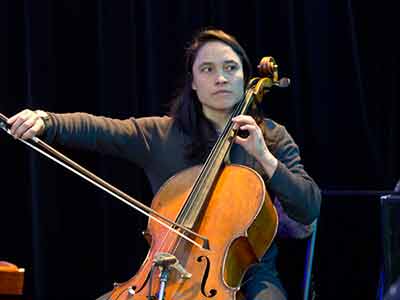
Peggy Lee at Performance Works in Vancouver
PL: Each piece is different. I often don’t write the chord changes. But there is defined harmony and melody in a lot of the pieces. I know that Brad (Turner) just likes to play instinctively on top of that, where other players might like to see the changes in front of them. For me, I don’t know that language that well, so I hesitate to say so that this is what it is, because another player might hear it differently. Some of the pieces don’t require—like the improvisational aspect of it is more textural and coloristic than playing within a harmonic structure. I’m very scrappy, and in fact there’s a piece called “Snappy” and that is the kind of improvising I’m going for. You know, a lot of these things just come together once. I might think, in my head, “This is what so-and-so will sound like improvising on this.” But I would never sort of suggest that when we come together to play music, because I really trust the musicians to do what’s right and what feels right to them (laughs).
JD: That’s starting to make more sense to me. Now, accessibility in a musical context. From an Internet dictionary. ‘Accessible -- Music that is easy to listen to and understand.’ I almost fell that jazz festivals kind of fear this music and often segregate this kind of music to late night shows and less accessible spaces. Not to mention that free and improvised music is often referred to as less accessible. Can you comment on that?
PL: (laughs) I’ve been pretty lucky with the festival here. They give this music a pretty high profile. I don’t consider it inaccessible. Ya, I’m just trying to do the music that makes sense and feels right to me. It’s really my last concern whether it is accessible to people or not, but at the same time, a lot of people come across this music and they’re surprised by it. By chance they happen in to a gig and then they’ve never heard anything like it or it seems like people find it quite cinematic and that’s kind of a way in. Know what I mean?
JD: Ya. It can be fairly, cinematic. In fact, I take notes on tracks off CDs that I’m going to use for my show. A notation like “movie music” and maybe the context means something to me, so I can go back, later and it helps in choosing music for sets. But movie music can be lots of different things. You can have music from Alfred Hitchcock’s The Birds or spaghetti westerns.
PL: Sure. I love it all.
JD: It’s wonderful and there are a lot of different things.
PL: I have to say I love one composer and the name probably doesn’t come up a lot in comparing my music to anything but Ennio Morricone—I love his music.
JD: Likewise. Just a while back we got an album of songs from his soundtracks (The Music Of Ennio Morricone Various artists [38 Movie Soundtracks]). Going through it I’d be remembering all these movies and how thick and rich the music was in them. Often the music was the best part of some bad movies, to be honest. The music was incredible, just soaring. It is wonderful that he carved out a niche in movies. He had a lot of other things going for him, too, of course. Now, I’m going to wonder about women in the jazz world. There is generally a lack of vocals in most jazz and I’m going to assume that the improvised/avant-garde community is pretty much the same. Are there the same challenges for women in the free jazz world as in rest of the music community?
PL: I come from classical music and there doesn’t seem to be any kind of barriers to women.
JD: No, definitely not.
PL: My personal experience in the improv scene is that there aren’t many doing it, relatively speaking. But at the same time, I’ve never felt anybody hesitating to work with me or having a weird attitude to me because I’m a woman. I’ve never felt that from any players or presenters. I’m not sure why there aren’t more women improvising. I think it’s changing, but there is still a long way to go.
JD: I was thinking that there are less vocalists in improvised music. There seems to be, especially in the jazz world, there are more women vocalists than there are men, and maybe numbers [of women] drop off that way because there are less people singing in the improvised area. But, that’s just something that ran through my head.
PL: I don’t know about that. I mean, there maybe as many vocalists as cellists (both laugh).
JD: You are also involved in another group called Waxwing.
PL: That’s right.
JD: Do you have more stuff coming out with them, soon?
PL: Yes. We recorded around a year ago. Jon Bentley, the saxophone player and composer, he’s been whittling away at it. We have two records out and this will be the third. I’m not sure when it is going to be done, but I look forward to that.
JD: I am, too. I liked reading about the band. You didn’t use the name Bentley Lee and Wilson, because it sounded too much like a law firm (both laugh). I found that quite funny. You can’t get a much more law firm sounding name than that. Who came up with Waxwing?
PL: Jon (Bentley) did, actually.
JD: You have a new CD out called Echo Painting.
PL: That’s right.
JD: Do any of your influences come out in Echo Painting?
PL: Karla Bley with Charlie Haden’s Liberation Orchestra. That’s definitely a big influence on this album and on my music in general. Also, Wayne Horvitz, whom I work with and his wife Robin Holcomb, who actually sings on the record.
JD: I wanted to ask you about that. You have a rare vocal appearance by Robin Holcomb on Echo Painting and you cover my favourite Band song “Unfaithful Servant.” Why did you choose that one?
PL: I’ve always liked it and thought that this would work as a vehicle for people soloing on it and everything. Recently I did “Whispering Pines,” another great tune by The Band and that works well, too, so, (laughs) maybe going to be doing some Band covers.
JD: Fine by me. You have recorded some really, beautiful pedal steel guitar on Echo Painting. What made you decide to go with that sound?
PL: It was just to work with my friend Bradshaw (Pack). I knew he was working on the pedal steel. He originally is a guitar player and has been working on the pedal steel on his own pretty much, for several years. Actually, we did a benefit a few years back and played a couple of tunes together with Brad Turner on trumpet, Dylan van der Schyff on drums and Andre Lachance was playing bass. We did a few tunes and that sound really, kind of stayed with me. When I was putting together this group, it seemed like an interesting addition; not the usual suspects.
JD: Getting back to your new album Echo Painting. If we want to get it, what do we have to do?
PL: Well, I have a bandcamp (page) and you can go there. We released it on vinyl, digitally and on CD. Also, the Songlines label page (https://songlines.com/release/echo-painting/). I don’t think Songlines is selling the vinyl, so you need to go the bandcamp page to get the vinyl version.
JD: Do you have any gigs coming up in the next while, with any of these projects or a new project?
PL: Well, I’m playing with another trio, it’s with guitarist Aram Bajakian, and JP Carter on trumpet. We have a trio called Handmade Blade. We are going to be playing at a little festival at the China Cloud in Vancouver. I think it’s on the 9th of November. The Echo Painting has been invited to play in Victoriaville in Quebec (The Festival International de Musique Actuelle de Victoriaville). That’s in the long weekend in May.
JD: That’s cool. They have quite a good improvised music scene in Quebec.
PL: They sure do.
JD: You should have a lot of fun there.
PL: Yes.
The Peggy Lee Band Echo Painting | Full Concert (June 25, 2016)
Website: http://www.peggylee.net
BandCamp: https://peggylee1.bandcamp.com/

